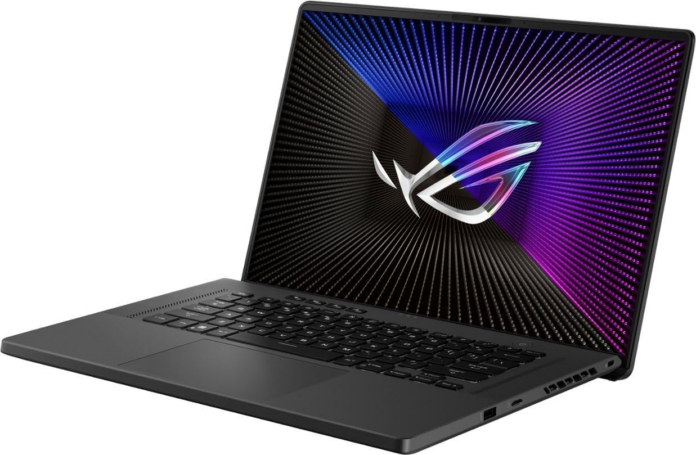ASUS’ most recent 14-inch gaming notebook is an exceptionally adaptable and fashionable multi-purpose device. However, for those seeking a more robust option, the ROG Zephyrus G16 is available. It not only boasts a stronger Intel Core Ultra 9 processor, but it also accommodates up to NVIDIA RTX 4090 graphics cards. But that’s not the end of it. Its OLED screen has a refresh rate that is double as quick at 240Hz, and it comes with impressively high-quality speakers and a full-size SD card slot for rapid file transfer from a camera. Therefore, even though the G16 is targeted at gamers, it is better suited to function as a mobile editing station, making it an excellent system even for individuals who are indifferent to bunny-hopping and fragging.
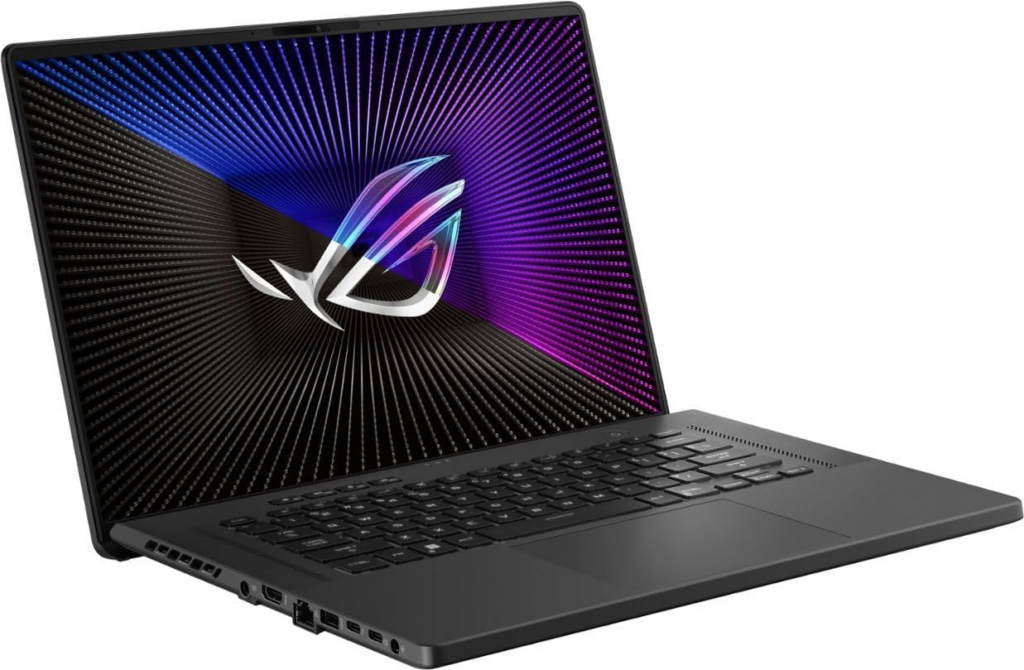
ASUS ROG Zephyrus G16 Review: Design and Build Quality
The G16’s fresh all-metal frame is truly remarkable. This is because, in addition to being slightly lighter (approximately 0.1 pounds) and slimmer (around 0.2 inches) than its predecessor, it feels even more robust. For 2024, ASUS has replaced the dot matrix display on its cover with a single diagonal line with white (not RGB) LEDs running down the middle, giving the laptop a far more refined appearance without becoming monotonous. It’s akin to a teenager who has matured and learned to dress appropriately without losing their gaming identity. Internally, there’s an illuminated keyboard with multicolored lighting (although it’s single-zone and not per-key) surrounded by some unexpectedly powerful speakers with an extraordinarily large touchpad beneath. All in all, it’s a wonderfully crafted system that looks as good as it performs.
ASUS ROG Zephyrus G16 Review: Connectivity
ASUS has also incorporated the perfect mix of connectivity features. The G16 comes with two USB 3.2 Gen 2 Type-A ports, two USB-C ports (one compatible with Thunderbolt 4), HDMI 2.1, a full-size SD card slot, and a 3.5mm audio jack. This type of setup allows you to travel without additional dongles or adapters. Furthermore, with ASUS’ new Slim Power Jack, you don’t have to monopolize any other ports while charging. You can also power up the G16 via USB-C in a bind, albeit at slower rates (up to around 100 watts) compared to the included 240-watt power supply.
ASUS ROG Zephyrus G16 Review: Display
The G16’s 2.5K (2,560 x 1,600) OLED display could be the standout feature here. It’s vibrant and supports a vast color spectrum (100 percent of DCI-P3), while its 240Hz refresh rate makes it ideal even for gamers seeking to maximize every last competitive edge. Although the brightness is merely average at around 400 nits in standard definition mode or 450 nits in HDR, I didn’t encounter any difficulties viewing the screen unless the G16 was under direct sunlight. An additional perk for photo and video editors is that ASUS incorporates a few calibrated viewing modes in its Armoy Crate application for sRGB, D65 P3, and DCI-P3, allowing for more precise hue adjustments or color grading of footage.
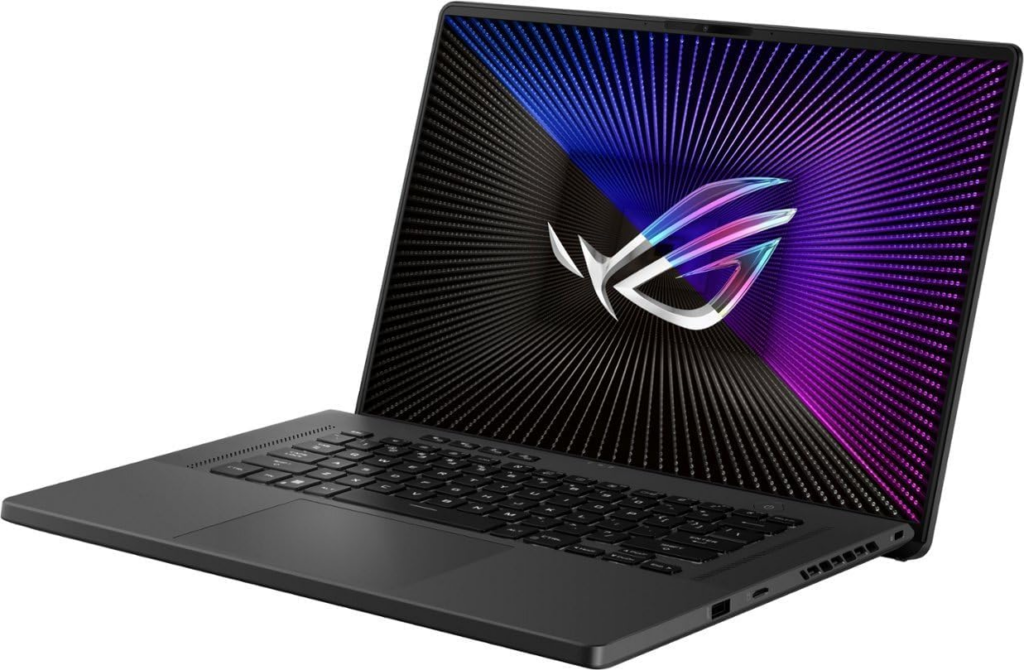
ASUS ROG Zephyrus G16 Review: Performance
The G16’s operation is quite robust, courtesy of an Intel Core ultra 9 195H CPU, up to 32GB of RAM, 2TB of storage, and NVIDIA RTX 4090 graphics. However, this is where some compromises for the G16’s sleek frame come into play. When compared to similarly-sized competitors like the Razer Blade 16, the G16 has a lower total device power (TDP), which means there’s still a difference in capabilities even if they seem to have the same components listed. For instance, on our test model with an RTX 4080, the power delivered to the GPU maxes out at 115 watts, compared to 175 watts for the Razer. The G16’s RAM is also soldered in, preventing any post-purchase additions.
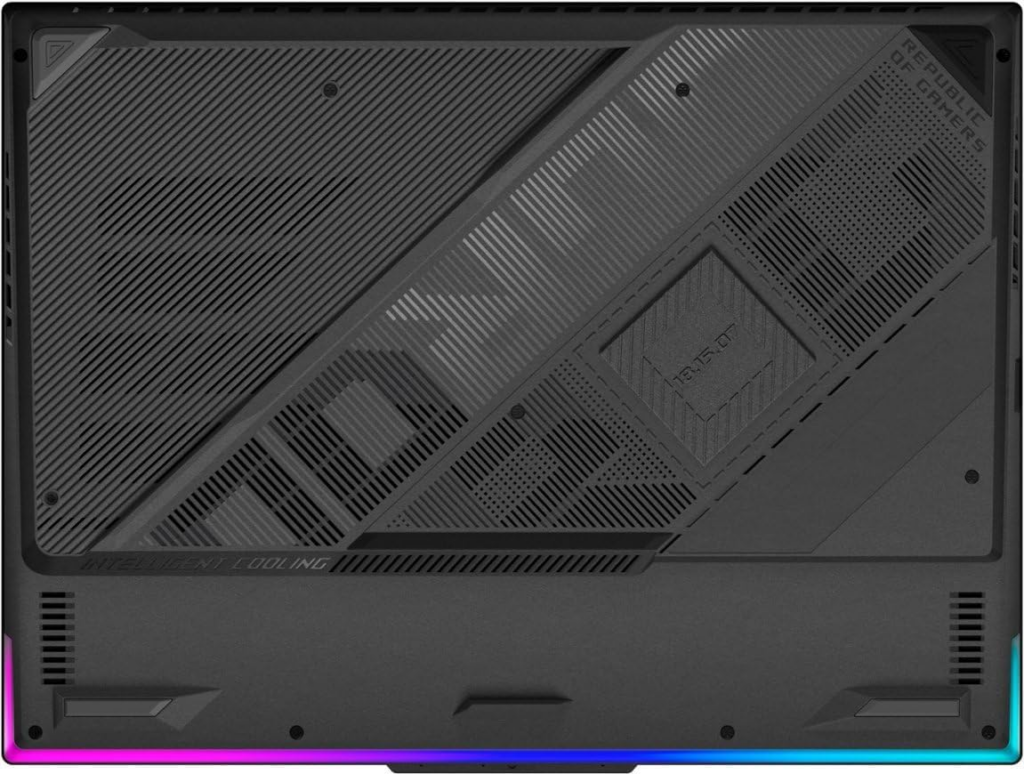
ASUS ROG Zephyrus G16 Review: Gaming Performance and Battery Life
In Cyberpunk 2077 at 1440p and ultra graphics with ray-tracing enabled, the G16 achieved 68 fps, which is marginally better than what we observed from a smaller Razer Blade 14 (66 fps), despite the latter featuring a lower-tier RTX 4070 but with a comparable wattage. That being said, these numbers are more than sufficient to keep AAA games running smoothly. And it’s worth noting that the Blade 14 model I mentioned is priced at $2,700, which is the same as our G16 test unit. This makes it a suitable comparison even if Razer’s laptop is more compact.
One of the primary benefits of a larger setup is the additional space for an expanded battery. On PCMark 10’s Open Office rundown examination, the G16 endured 9 hours and 17 minutes, compared to a mere 5:12 for the smaller G14. This is a commendable score, especially considering it surpasses an XPS 16 (8:31) we evaluated. However, the overall endurance is contingent on your workload, as when I conducted the battery test a second time solely utilizing the GPU instead of depending on NVIDIA’s Optimus graphic switching feature, that duration plummeted to just 3:08. This implies that the system will last the entire day if you’re utilizing basic productivity applications, but for more intensive tasks like gaming or video editing, you’ll want to have ASUS’ 240-watt power adapter within reach.
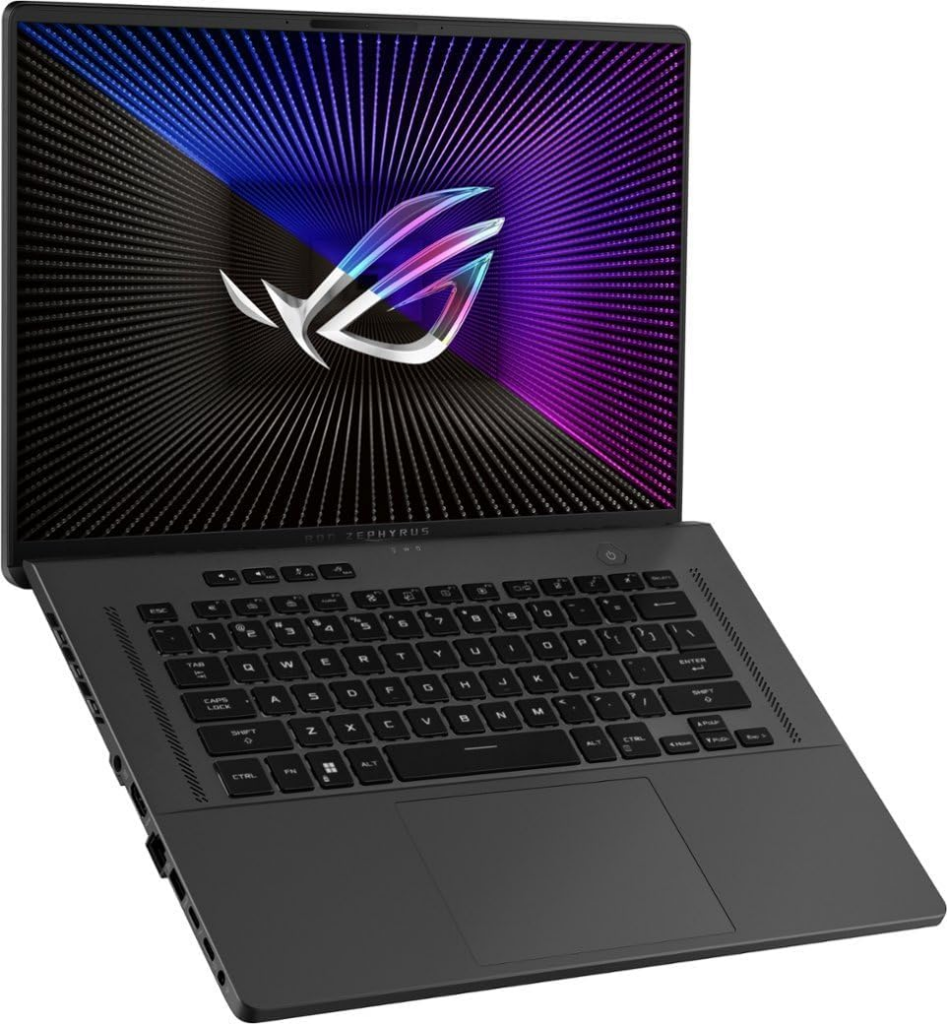
Conclusion
Similar to its more compact counterpart, ASUS’ ROG Zephyrus G16 is nearly the perfect slim and lightweight gaming laptop. It boasts a chic all-aluminum construction, a stunning 240Hz OLED screen, and extended battery life. Admittedly, it may not be as potent as some of its competitors due to lower-wattage components, but it still possesses sufficient power to manage virtually anything you can challenge it with. Coupled with a full-size SD card reader, it serves as an even superior mobile editing platform. Most significantly, with an initial price of $1,750, the G16 is more accessible than many of its high-end (and heftier) rivals, making it an excellent choice for individuals seeking a larger system that won’t burden them.
